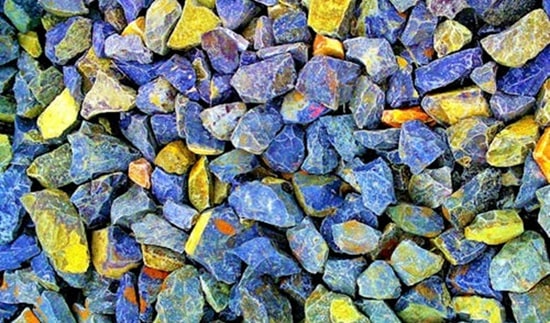Have you ever felt that there might be something more beneath your land? We’re not talking about your dog’s bone, or something else that’s simplistic. We’re talking about truly valuable materials; resources like natural fuels, minerals, etc. These and many more, you may be surprised to know, can be found not just across the world, but also beneath one’s own house or property. Resources like these, give a property more value than what it was originally worth. But the key to unlocking these potential profits, lies in the hands of something called mineral rights, which are best handled by mineral rights companies.
How do they do this, you may ask? What’s the process? What does it entail? These questions and others, are what we’re going to answer in today’s article.
What to Understand About Mineral Rights

Mineral rights can be a tricky topic to understand if you’re new to them. But when you learn more about them, especially for those who are landowners, understanding them can open up a world of opportunities (not to mention substantial profits). Let’s talk about what they are and how they differ from surface rights.
Mineral rights (see more here) refer to the ownership of any natural resources found below the surface of land. These resources can include oil, gas, coal, metals, and other valuable materials. When someone owns these rights, this gives them the legal entitlement to whatever resources are to be found beneath the land.
However, the term ‘legal context’ is important here. Because in many cases, owning land doesn’t automatically mean you own the mineral rights beneath it. They can be separately owned and sold. This means that someone else might hold the keys to that underground treasure, even if you already own the land itself.
What’s the Difference Between Mineral Rights and Surface Rights
Learn more at this site: https://americannewsreport.com/mineral-rights-vs-surface-rights/
Surface rights and mineral rights may seem similar, but they serve different purposes. The former gives you control over the surface of the land and what’s built upon it. On the other hand, the latter is all about what lies beneath. They allow for the exploration and extraction of minerals without necessarily owning the surface.
Here’s some key factors of how they differ:
- Ownership: Surface rights talk about the land itself, whereas mineral rights involve the underground resources that lie beneath the land.
- Usage: Surface rights holders have authority when it comes to development of the land, while mineral rights owners can dig and extract the minerals beneath said land.
What are the Roles of Mineral Rights Companies?
As you may expect, mineral rights companies serve as vital partners for landowners looking to tap into the hidden value beneath their land. These companies have specialized knowledge and expertise, guiding landowners through the very often complex process of managing and maximizing their mineral assets. How?
1. Assessment and Evaluation
One of the first steps in unlocking the value of mineral rights is truly understanding just what exactly you have. These companies conduct thorough assessments which help determine the potential worth of the resources under the land. They do this by using advanced technologies and methods to evaluate the type and quantity of minerals present. These methods involve:
- Geological Surveys: Experts analyze the land’s geology to identify minerals and their accessibility.
- Appraisal Reports: These companies generate detailed reports that estimate the market value of your mineral rights, giving you a clear picture of potential returns.
- Data Analysis: By using historical and current market data, they provide realistic forecasts, ensuring you’re informed every step of the way.
2. Negotiation and Transactions
Negotiations can be tough. Mineral rights companies make this easier by acting as negotiators on the behalf of landowners. They ensure you get the best possible terms, whether you’re selling or leasing your rights. Some of the ways they assist include:
- Expert Negotiators: They are experts in negotiating, helping you find the best deal for you.
- Customized Contracts: They make agreements to suit your specific needs, to help ensure that you and your interests are protected.
- Risk Management: By assessing any potential risks, they help you make informed decisions and avoid potential pitfalls.
3. Regulatory Compliance
They are well-versed in local and federal regulations, ensuring all actions are compliant. This is crucial, as failing to comply can lead to costly fines or legal issues.
- Permits: They handle all necessary paperwork to secure permits, saving you time and hassle.
- Environmental Laws: These companies ensure operations meet environmental standards to avoid any legal trouble.
- Regular Updates: As laws change, they keep you informed, so you’re always adhering to current requirements.
4. Market Knowledge
Having a finger on the pulse of the market is essential for maximizing profits. Mineral rights companies have deep insight into market trends and pricing, using this knowledge to your advantage.
- Price Forecasting: They predict market fluctuations to help you time sales or leases strategically.
- Resource Demand: Understanding what minerals are in demand helps prioritize which ones to focus on.
- Competitive Analysis: By keeping an eye on competitors, they ensure your deals remain competitive.
Conclusion
In conclusion, minerals can offer a property more value than its initial worth. But to unlock that potential wealth, a mineral rights company is needed, as they are those with the means, expertise, and knowledge to do so. When you have one that possesses all of these attributes, you may find yourself not only prepared, but also richer than before.

Meet Suhas Harshe, a financial advisor committed to assisting people and businesses in confidently understanding and managing the complexities of the financial world. Suhas has shared his knowledge on various topics like business, investment strategies, optimizing taxes, and promoting financial well-being through articles in InvestmentDose.com


